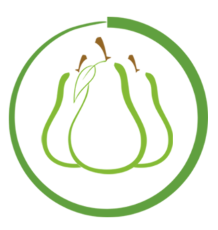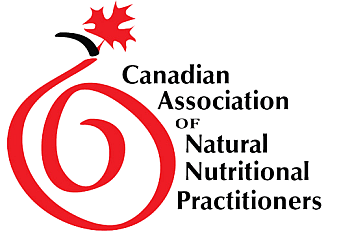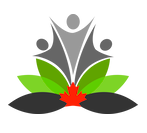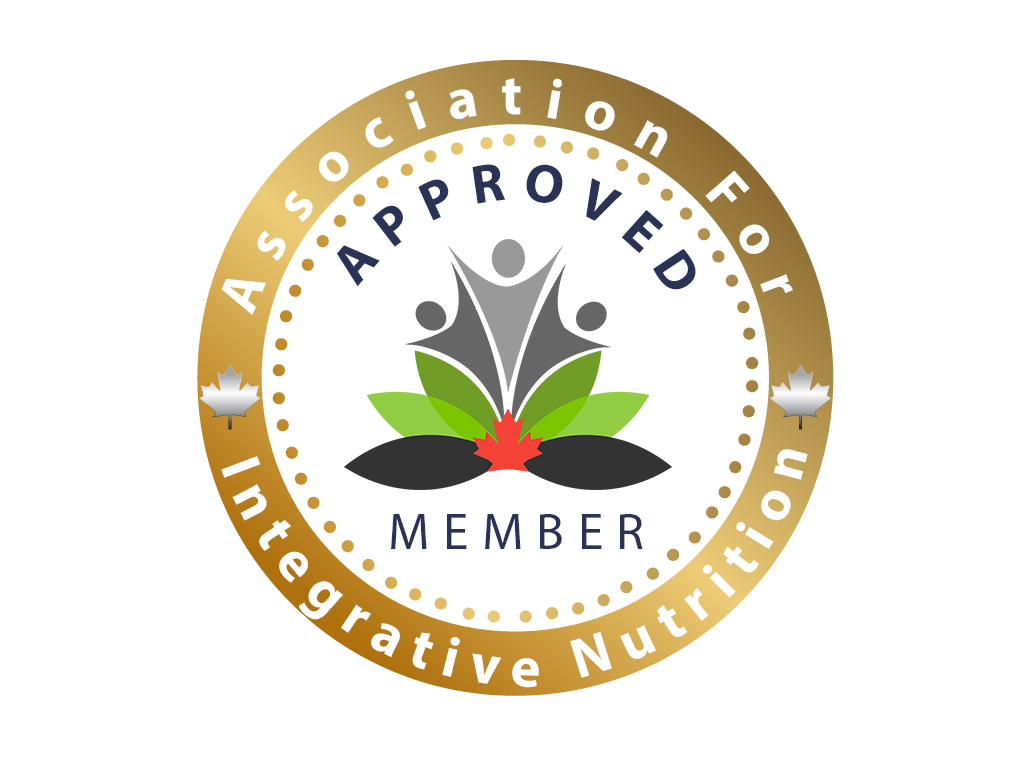As a holistic nutritionist, your goal is to help people live better lives using holistic nutrition and the knowledge, the skills, and the insights you have garnered through nutrition school and through life. But in an unregulated industry, who is there to legitimize your profession in the eyes of the public and help your holistic nutrition practice flourish?
Holistic nutrition associations are here to help you. In the absence of any provincial authority in Canada, these professional associations make a strong case for uniting under a common flag and moving the holistic nutrition industry forward.
Disclaimer:
Holistic Nutrition Hub is not affiliated with any holistic nutrition school, course, program, or association. The goal of the article is to help you pick the right holistic nutrition association for YOU. We aim to provide an honest and unbiased overview of all the options that are available in Canada, however, we DO NOT guarantee the accuracy of the information contained in this article. This article is based solely on the information gathered from the associations’ websites. For more details, please contact the professional nutrition organizations directly.
In this article, we will explore the many different questions that you have about holistic nutrition associations and hopefully provide you with the answers you need to move forward and decide which Canadian nutrition association is right for you.
Why Join A Holistic Nutrition Association?
Whether you’re still a holistic nutrition student or an established holistic nutrition practitioner, there are many good reasons to become the member of a Holistic Nutrition Association and get accredited.
But since many of you might not yet know what these organizations can do for you and your business, let’s explore the most important reasons you should consider joining a professional holistic nutrition association.
Strengthen the holistic nutrition industry
As you already know, holistic nutrition is an unregulated field in Canada. This means that there is no provincial entity that has assessed the profession to determine whether or not it should be regulated.
According to the HPRAC website, the main reason to regulate a health profession is when it poses a substantial potential for harm to the public. If the specific health profession has a significant potential to do harm (in a life-threatening way), regulation ensures that the appropriate standards of education, care, and services provided are met and respected by all practitioners of said profession.
On one side, this is good news for holistic nutrition practitioners: it means that up to this point, the relevant provincial entities have not judged it necessary to investigate the holistic nutrition industry because it does not pose a serious threat to public health.
It also means that as holistic nutritionists, you have the freedom to tailor your approach to each client and provide a wide variety of services under the scope of holistic nutrition (e.g. shopping tours, cooking workshops, lifestyle coaching, etc…)
Unfortunately though, the lack of provincial regulation is a double edged sword.

The absence of unified standards
It also means that no single entity is in charge of checking the holistic nutrition practitioners’ standards of education, scope of practice, standards of care, and standards of services provided to clients. So it’s up to the public to do their own research and figure out if the nutrition practitioner they wish to work with can provide the service(s) they are looking for.
It’s up to the public to do their own research and figure out if the nutrition practitioner they wish to work with can provide the service they are looking for. Click To TweetThe abbreviation/designation problem
The other big issue that emerges in the self-regulated holistic nutrition industry is the lack of coherence in the designations/abbreviations that each practitioner is awarded upon completing their holistic nutrition school of choice.
When you’ve been immersed in this field for a while, it’s no secret to you that a graduate from CSNN practicing is the province of Alberta can use the professional titles of Certified Holistic Nutritional Consultant™ (C.H.N.C.) or Certified in Holistic Nutrition™ (C.H.N.). But if this same graduate now decides to practice in British Columbia, they could decide to call themselves a Registered Holistic Nutritionist™ (R.H.N.), in addition to the two titles cited above.
For a graduate of the Institute of Holistic Nutrition, the single designation of CNP (Certified Nutritional Practitioner) is available. And so on…
This makes it extremely hard for the lay person to determine which practitioner has completed what training, in which school, and for what length of time. The general confusion around abbreviations and designations works against every holistic nutritionist, since a potential client needs a simple and easy way to distinguish a professional nutrition practitioner from a less trained one.
But thankfully, there IS a solution to both those problems.
A potential client needs a simple and easy way to distinguish a professional nutrition practitioner from a less trained one. Click To TweetThe association solution
By joining a holistic nutrition association, you are actively moving toward both higher industry standards and a more unified message for the public, which are both crucial to help advance the holistic nutrition profession.
Even though there is more than one association, each organization ensures that you have met their specific requirements and shows your potential clients that you have gone the extra mile in making your holistic nutrition practice legitimate.
Many associations even have their own designations which can be used safely and consistently no matter what province you practice in and what school you came from.
In short, joining a nutrition association might be the biggest step you can take toward getting all holistic nutritionists to be more respected and recognized by the public.
Joining a nutrition association might be the biggest step you can take toward getting all holistic nutritionists to be more respected and recognized by the public. Click To TweetInteract with other nutrition professionals
Finding a strong group of like-minded people with which you can grow over time will be of paramount importance if you wish to have a successful career in the holistic nutrition industry.
By joining a professional nutrition association, you will often get discounted (and sometimes free) access to industry seminars, trade shows, and presentations. This is the perfect opportunity to meet fellow holistic nutritionists and build strong ties with other like-minded professionals.
Be covered by your clients’ health insurances
A number of associations have done the work necessary to get your holistic nutrition services covered by some of the major health insurance providers (depending on the association: Claim Insure, Manulife, iA Financial Group, Industrial Alliance, GB Assurance, Greenshild Canada) . This means that your clients can benefit from your services without having to pay everything out of pocket (as long as the client/employer has chosen “nutrition counselling” as a policy option).
This is a very big selling point for you as a holistic nutrition professional. It is also another important factor that will help legitimize the holistic nutrition profession in the eyes of the public.
The more practitioners join nutrition associations, the stronger they become, and in turn, provide incentive for the big insurance companies to consider covering your holistic nutrition services. Everybody wins!
Access holistic nutrition continuing education programs and training
Once your schooling in holistic nutrition is completed, you could think that you know enough about your field to do your job effectively. You might get comfortable with the knowledge you have acquired up until that point and stop learning.
But this is a huge mistake many new practitioners make.
If you wish to have a long and successful career, you need to keep learning. There is no way around this. The best practitioners in holistic nutrition are the ones that keep challenging their own beliefs and constantly seek out new information in a critical way.

As a member of a holistic nutrition association, you will get access to courses, trainings and continuing education opportunities that might not otherwise be available to the unaffiliated practitioner.
Remember to take advantage of those resources and keep investing in yourself to grow into a more complete, competent and knowledgable holistic nutritionist.
The best practitioners in holistic nutrition are the ones that keep challenging their own beliefs and constantly seek out new information in a critical way. Click To TweetAdditional benefits for holistic nutrition association members
The exact benefits that you will receive as a member vary from one association to another. However, here is a basic overview of what you can expect to get access to by joining a holistic nutrition association:
- Discounted professional liability insurance
- Discounted personal benefits insurance
- Extended health insurance packages
- Discounted access to business tools and sevices
- Access to nutritional research journals, summaries, and databases
- Discounted health products and supplements
- Access to business promotion platforms/practitioner directories
- Direct access to job opportunities within the industry
- Access to a monthly newsletter
Now that we’ve had a look at the main reasons why you should join a holistic nutrition association, let’s have a look at who is allowed to join a holistic nutrition association.
Who Can Be Part Of A Holistic Nutrition Association?
One thing is clear: professional nutrition associations offer services that are geared toward people working in, or supporting the holistic nutrition industry.
And although these associations do have a public-facing aspect (to help you find clients and promote your business), memberships are almost always reserved to holistic nutrition students and practitioners.
Student memberships
Most associations offer membership options even if you are still a holistic nutrition student. This gives you an opportunity to get involved in the industry even if you haven’t yet completed your holistic nutrition program.
These memberships often don’t require you to complete any continuing education to maintain your affiliation, but often allow you to benefit from some of the advantages that the association has to offer to practicing holistic nutritionists.
Student memberships often fall under the none-voting category and require you to be enrolled in an approved holistic nutrition school. The yearly fee for a student membership is usually between $0 and $100 (CAD).
Graduate/professional memberships
Professional memberships give you access to all the benefits that the association has to offer. They require you to have graduated from an approved school (see list below).
Some associations offer both monthly and yearly membership options. Yearly membership fees for certified holistic nutrition practitioners cost between $100-$450 (CAD)
To maintain a professional membership, you will often have to complete a certain number of hours of continuing education (between 25 and 35 hours/credits).
Now that you know what options are available to you, let’s see what you need to do in order to join a holistic nutritionist association.
How To Become The Member Of A Holistic Nutrition Association?
Each Holistic nutrition association has its own list of requirements. You will need to meet all of them before you can get your membership approved.

In order to get ready for your application, you might need to prepare the following documents:
- Copies of certificates, transcripts and any other documentation for your training qualifications
- A cover letter stating why you wish to become accredited by the chosen association (might require details about business goals and philosophy).
- A resume/curriculum vitae (CV).
- Professional references in the form of written character references.
- A passport photo.
- A completed application (see specific school application forms).
- Proof of professional liability coverage (sometimes available through the association).
- Payment information.
Before getting all these documents ready, make sure you check which ones are required by the association you chose.
What Canadian Holistic Nutrition Programs/Schools Are Recognized?
It’s worth noting that no holistic nutrition association recognizes all the Canadian holistic nutrition programs. Depending on which school you choose to attend, you might limit your chances of getting accepted by a holistic nutrition association.
Holistic nutrition schools can still apply to get approved. If your program is not yet recognized by the association you wish to join, I highly recommend you get in touch with your school’s head office and make a request. You can also find a group of students/graduates who wish to join the same association and create a group letter for your school.
For more information about which schools are recognized by the different associations, head down a couple of sections in the article.
What Does It Mean To Be A Board Certified Practitioner?
Certain associations offer an exam that you can pass to become a board-certified practitioner. This is done in an effort to harmonize the educational level of the association’s professional members.
This ensures that all holistic nutrition practitioners representing the association will do so in the most professional way possible, following their scope of practice and code of ethics.
What Designation Does One Receive When Joining A Holistic Nutrition Association?
Most associations have at least one designation that helps distinguish their members from the other practitioners in the industry. These can be used instead of (or in addition to) the designations that the practitioner has earned in school.
Just as the board certification does, a single set of designations helps unify all association members under the same flag, providing a more homogenous and consistent message to the public.
Some associations have different designations depending on your education level and/or years of practice as a holistic nutritionist.
What Are The Best Holistic Nutrition Associations For Canadian Holistic Nutritionists?
Now that you have a better understanding of what professional nutrition associations do and how you can benefit from joining them, let’s explore in more detail the 4 best holistic nutrition associations in Canada.
Canadian Association Of Holistic Nutrition Professionals (CAHN-Pro)

| CAHN-Pro At A Glance |
|---|
| Established: N/A |
| Number of Members: N/A |
| Board Exam Available: Yes |
| Yearly Fee: $100-$285 |
The Canadian Association of Holistic Nutrition Professionals (CAHN-Pro) has a board of directors that is composed of 14 established holistic nutrition practitioner.
CAHN-Pro’s main member benefits include service coverage by 4 major insurance companies (Claim Secure, Manulife, Industrial Alliance, and GB Assurance), discounted personal benefits insurance, and discounted liability insurance coverages (including online consultations & cooking classes). You can see the full list of their member benefits here.
This association recognizes the following main Canadian holistic nutrition programs:
- Canadian School Of Natural Nutrition (CSNN)
- Institute Of Holistic Nutrition (IHN)
- Edison Institute Of Nutrition
- Pacific Rim College – Holistic Nutrition Program
A board exam is available for practitioners who have at least one year of experience in the holistic nutrition field. The passing grade is 80% or higher. The board exam tests your knowledge of the association’s standards, code of ethics, and scope of practice.
CAHN-Pro offers three membership levels: Associate, Standard, and Board-Certified. You can read more about the various options here.
Although they do offer a board examination, they do not currently offer any additional designations to their members.
To maintain your membership you need to obtain 25 CECs (Continuing Education Credits) each year.
You can learn more about joining CAHN-Pro here.
Canadian Association Of Natural Nutrition Practitioners (CANNP)

| CANNP At A Glance |
|---|
| Established: N/A |
| Number of Members: N/A |
| Board Exam Available: No |
| Yearly Fee: $0-$290 |
Now let’s talk about the Canadian Association Of Natural Nutrition Practitioners (CANNP).
Mission Statement:
“The Canadian Association of Natural Nutritional Practitioners is a professional association distinct in its building business focus. Our unique mandate is to mentor and give back to members through exceptional benefits, while tackling the tough industry questions, pursuing insurance coverage and meeting with Government to protect/ensure our right to practice.”
CANNP’s main member benefits include service coverage by 5 major insurance companies (Manulife, iA Financial Group, GreenShield Canada, ClaimSecure Inc. and Blue Cross Alberta), discounted liability insurance coverages, and extended (optional) health and dental benefits package. You can learn more about those benefits here.
This association recognizes 5 of the biggest Canadian holistic nutrition programs:
- Canadian School Of Natural Nutrition (CSNN)
- Institute Of Holistic Nutrition (IHN)
- Edison Institute Of Nutrition
- Pacific Rim College – Holistic Nutrition Program
- Alive Academy
CANNP offers two membership levels: a student membership (free) and a professional membership.
By joining CANNP as a professional member, you will earn the right to use the designation NNCP (Natural Nutrition – Clinical Practitioner) in addition to your other school designations. For professional members who have been practicing for over three years, the designation RNT (Registered Nutritional Therapist) is available.
To remain a member you need to obtain 30 CECs (Continuing Education Credits) each year in addition to taking part in mentoring sessions.
At this time, CANNP does not offer a board examination.
A word from the founders:
“CANNP was formed because there was a lack of quality representation in the industry, and has since successfully changed the face of the profession by providing each member with interactive, dynamic and unique benefits and support systems. Our board, including a lawyer and business adviser, both of whom chime in to help us execute with integrity, helped us to establish Canadian Action for Nutrition. CAN has been instrumental in bringing legal support to our causes, most recently in Nova Scotia. The most successful practitioners are those who take advantage of all we have to offer.”

You can learn more about joining the Canadian Association Of Natural Nutrition Practitioners here.
Canadian Association For Integrative Nutrition (CAIN)

| CAIN At A Glance |
|---|
| Established: N/A |
| Number of Members: N/A |
| Board Exam Available: No |
| Yearly Fee: $300 |
The Canadian Association For Integrative Nutrition (CAIN).
CAIN’s main member advantages include professional liability coverage, an extended health benefits package, free access to Natural Medicines Database, and a 5-part business course.
This association currently recognizes the following two holistic nutrition schools in Canada:
CAIN offers a single membership options for graduates from the approved programs listed above.
Members of the Canadian Association For Integrative Nutrition earn the right to use the designation Registered Holistic Nutrition Practitioner™ (RHNP™) and/or Licenced Holistic Nutrition Practitioner (LHNP) depending on the province.
To remain a member you need to obtain 35 CECs (Continuing Education Credits) each year.

At this time, CAIN does not offer a board examination.
You can learn more about joining the Canadian Association For Integrative Nutrition here.
International Organization Of Nutritional Consultations (IONC)

| IONC At A Glance |
|---|
| Established: N/A |
| Number of Members: N/A |
| Board Exam Available: No |
| Yearly Fee: $150-$375 |
Lastly, let’s have a look at the International Organization Of Nutritional Consultants (IONC).
The IONC members can benefit from the following advantages: Discounted liability insurance, Health and Dental coverage options, and a free subscription to Natural Medicine Database. For the full list of benefits, please visit this page.
The IONC recognizes the following Canadian holistic nutrition certifications:
- Institute Of Holistic Nutrition (IHN)
- Edison Institute Of Nutrition
- Alive Academy
- College of International Holistic Studies (CIHS)
This association offers an associate, a student, and a professional membership.
Approved members of the IONC receive the designations of Registered Nutritional Consulting Practitioner (RNCP – min. 1000 hours of training) and Registered Orthomolecular Health Practitioner (ROHP – min. 2000 hours of training).
At this time, the IONC does not offer a board examination.
To remain a member you need to obtain 25 hours of continuing education each year.
You can learn more about joining the International Organization Of Nutritional Consultants here.
Which Holistic Nutrition Association Did You Choose And Why?
Our hope is that this article has helped you decide which professional association to join. Let us know in the comments below, which association you decided to join and why!
If you found this guide useful, please take a minute to share it with your fellow students or practitioners so we can grow this industry in a positive and meaningful way!
Up Next
How To Find Your Nutrition Niche
Sean is the co-founder of the Hub, a dedicated Personal Trainer and an Entrepreneur at heart. Passionate about all thing nutrition and fitness, he takes care of the HNH website, the community, and most of the laundry around the house. In his spare time, Sean loves building websites and writing about all things fitness, business, and marketing.


